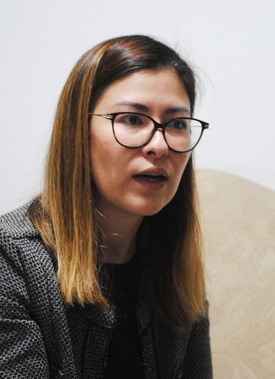[Nagai] But I wonder why Japanese people preserve their traditions. Is it a characteristic of Asian people?
[Fukazawa] It's because they are different from the European culture that is the basis of Brazilian society, and I personally think that the more discrimination there is, the more culture and community remain. Because they are discriminated against, the culture takes root and remains as a reaction to each other. I think that if the next generation of Japanese who went to Japan were raised in Japan, they would be "almost Japanese" if they hadn't been discriminated against by Japanese people.
Since Japanese people are related by blood, I think Japanese people are the easiest people to accept. It's easier for Japanese people to accept them than foreigners who have no blood ties at all. So we'll start by accepting them, and if it goes well, we'll expand to other foreigners.
I hope that some of the generation that grew up in Japan will return to Brazil and create a cycle that will revitalize the colonias here.
This would ensure that the Nikkei community, which is the foundation of Japan-Brazil relations, would continue to be active on both sides. We could create a Nikkei community that acts as a "buffer zone" centered on people who travel between Japan and Brazil. Ideally, this would be a place where people who can connect the two countries would continue to be born.
[Nagai] That would be the best thing. Many Japanese families already have relatives in both Brazil and Japan. Given that, we need to create an environment where people who travel back and forth can feel positive and have a place in the world.
[Fukazawa] I wonder what it's like to keep focusing on the negative aspects of dekasegi, like families being torn apart. I think we need to have a long-term perspective, something that looks ahead to two or three generations.
At the very least, we need to think about it over a span of 30 years or so until the first generation of Koreans are born and grow up in Japan. In that case, it's already a "migration policy." It's impossible to get results in four or five years.
[Nagai] However, there are many people who support Brazil, and even many Brazilians, who are of the opinion that we shouldn't allow fourth-generation Brazilians and beyond to go to Japan endlessly. "If they can't speak Japanese, they'll have a hard time over there, so it's better not to let them go," they say.
[Fukasawa] It's better to be able to speak Japanese.
[Nagai] It's better to be able to speak Japanese, but the question is whether to restrict that. There are also people who say, "I can't speak Japanese, but my mom and dad live in Japan, so I want to go to Japan too." There is also a lack of consensus on this point.
[Fukazawa] I understand. I think Japanese-language newspapers like ours have played a role in preventing friction when it comes to living in Brazil by disseminating information in Japanese, such as what has been decided in Brazil and what you should do in certain situations.
Such media exists in Japanese communities as well, and if they are good at disseminating the necessary information, the minimum amount of information should be able to be conveyed even if you don't speak Japanese.
[Shimano] There is Portuguese language media in Japan, but there is a lot of incorrect information circulating.
[Fukasawa] Fake news, for example.
[Shimano] With the fourth generation visa issue, as word spread by word of mouth and became half rumor, it caused resistance against the Japanese government among Japanese people. They took it in a negative way, thinking that the Japanese were discriminating against us after all.
[Fukazawa] It would be great if the fourth generation visa system could help raise hundreds of people like Patricia on both sides of the border. This would mean that people who can become a middle class between the community and the local country on both sides would be cultivated across borders.
Moreover, if the fourth-generation visa is successful and they are able to obtain permanent residency, and if this system spreads to the fifth and sixth generations as well, it will lead to a continuous production of human resources that will support the Japanese community.
[Shimano] I think there are already a certain number of them in Japan. This is true for fourth-generation Japanese children who grew up in Japan, but I think there are already people who have the potential to function in Japanese society on an equal footing with Japanese people.
[Fukazawa] Also, something I would like to see Japan focus on in the future is the establishment of a support system that allows fourth-generation Brazilians to continue on to Japanese universities. It is important that we reach a time when there is no need for them to return to Brazil to continue on to university, as was the case with Patricia.
Continued >>
*This article is reprinted from the Nikkei Shimbun ( August 31st and September 1st , 2018).
© 2018 Masayuki Fukasawa / Nikkey Shimbun







